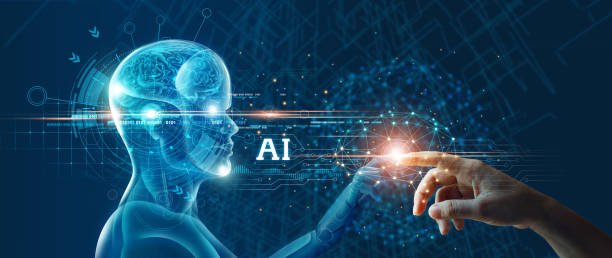As technological advancements evolve at an unprecedented pace, artificial intelligence (AI) and autonomous systems are reshaping various sectors globally, including defense and security. In recent years, the intersection of AI and global security has emerged as one of the most critical research and policy development areas. As nations seek to bolster their security apparatuses and military capabilities, AI-driven systems and autonomous technologies are becoming essential in predicting, preventing, and responding to threats on a global scale.
The impact of AI on global security is far-reaching, from enhancing the precision of military operations to transforming intelligence-gathering techniques. These technologies have the potential to revolutionize how nations approach defense strategies, fundamentally altering the global security landscape.
Rise of AI in Global Security
AI’s integration into global security is not just a theoretical prospect—it is already happening. Militaries worldwide are adopting AI for tasks such as surveillance, logistics management, and even battlefield operations. By harnessing the power of machine learning, AI systems can analyze vast amounts of data faster than any human could, allowing for quicker and more informed decision-making.
Moreover, autonomous systems, such as drones and unmanned vehicles, are becoming increasingly prevalent in modern warfare. These systems operate with minimal human intervention and are capable of carrying out complex missions, from reconnaissance to targeted strikes. The ability to act independently in combat zones adds a layer of precision and adaptability that was previously unachievable.
However, the rapid rise of AI and autonomy in security operations also presents significant challenges. As countries race to develop these technologies, the risk of an AI arms race emerges, where adversarial nations could use AI to gain a strategic advantage. This competition could destabilize global security, making it essential for policymakers to address the ethical and legal implications of AI in warfare.
Autonomous Weapons and Ethical Considerations
One of the most contentious aspects of AI in global security is the development of autonomous weapons systems, also known as “killer robots.” These systems, equipped with advanced AI, can identify and engage targets without human intervention. While such technology could reduce casualties by minimizing the need for human soldiers in dangerous environments, it also raises significant ethical concerns.
The idea of machines making life-and-death decisions autonomously is deeply troubling for many. Critics argue that AI lacks the moral and ethical judgment necessary to make such decisions, leading to potential violations of international humanitarian law. As a result, there have been numerous calls for international regulations to govern the use of AI in military contexts.
Despite these concerns, the deployment of autonomous systems in global security is likely to continue. Nations that can effectively integrate AI into their defense strategies will possess a significant advantage, potentially altering the balance of power on the global stage.
AI and Cybersecurity Threats
In addition to its impact on traditional military operations, AI is playing an increasingly important role in the realm of cybersecurity. As global security becomes more reliant on digital infrastructure, the threat of cyberattacks has escalated. AI can both protect against these attacks and be used as a weapon in cyberspace.
AI-driven cybersecurity tools can detect and respond to threats in real-time, identifying vulnerabilities and mitigating risks more efficiently than human-operated systems. However, the same technologies can be exploited by malicious actors to launch sophisticated cyberattacks. Autonomous hacking systems powered by AI could adapt to defenses, making them difficult to counter.
The dual-use nature of AI in cybersecurity—its ability to both protect and attack—adds complexity to global security. This underscores the need for international cooperation and regulation to prevent AI from becoming a destabilizing force in global conflict.
AI’s Role in Intelligence and Surveillance
One of the most significant contributions of AI to global security is in the field of intelligence and surveillance. AI algorithms can analyze vast datasets, such as satellite imagery, communications, and social media, to identify patterns and potential threats. This capability allows governments to anticipate and prevent security breaches before they occur.
For example, AI is being used to detect terrorist activities, track the movement of weapons, and monitor the proliferation of dangerous materials. These advanced surveillance techniques give security agencies a greater ability to safeguard national borders and protect global assets.
However, the widespread use of AI in surveillance also raises concerns about privacy and civil liberties. As governments and private organizations gain more power to monitor individuals, there is a risk that these technologies could be misused. Striking a balance between security and personal freedom will be critical as AI continues to develop in this space.
Global Security Implications of Autonomous Warfare
The rise of AI and autonomous systems poses significant implications for global security dynamics. Countries with advanced AI capabilities will likely dominate future conflicts, as these technologies provide strategic advantages in speed, accuracy, and decision-making. Autonomous systems can carry out missions with minimal human oversight, allowing military operations to become more efficient and less prone to human error.
In his futuristic novel, Above Scorched Skies, Zachary S. Davis explores how AI and autonomous systems shape the future of warfare. His work delves into the ethical dilemmas and potential conflicts that arise as nations increasingly rely on these technologies to secure their borders and protect their interests. The novel serves as a cautionary tale, warning of the risks associated with unchecked advancements in AI and autonomy. These themes resonate with real-world discussions about the future of global security and highlight the need for responsible AI development.
Summary
As AI and autonomous technologies continue to evolve, their impact on global security will only grow. Nations that fail to invest in these technologies risk falling behind in terms of defense capabilities, while those that push the boundaries of AI development must grapple with the ethical and strategic challenges these systems present.
Ensuring that AI serves as a force for stability, rather than conflict, will require international cooperation, clear regulations, and an ongoing commitment to ethical governance. The future of global security is deeply intertwined with the development of AI, and policymakers, researchers, and military leaders must work together to navigate this new frontier responsibly.
In the coming years, AI will play an increasingly pivotal role in shaping defense strategies, cyber defenses, and intelligence operations. As nations move towards a future where autonomy and machine learning become central to security, the decisions made today will shape the stability of the world for decades to come.



